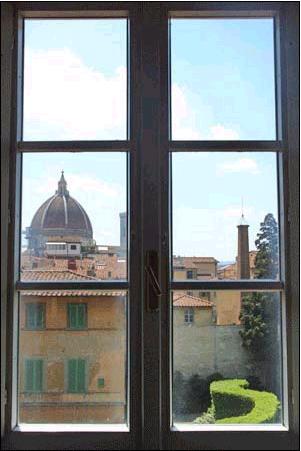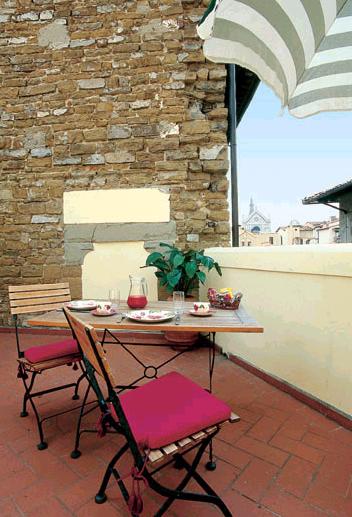
Candida Martinelli's Italophile Site

Main
Page This family-friendly site celebrates Italian culture for the enjoyment of children and
adults. Site-Overview
Quick Link: download a PDF copy of the book from this site Quick Link:
Quotes Below Window Posters/Wallpaper Murals Click
on a chapter title below to read the story on-line (HTML). Alter
the text size for on-line reading ease with your browser's 'View/Font
Size' option. PART
ONE Chapter
II: In Santa Croce with No Baedeker Chapter
III: Music, Violets, and the Letter "S" Chapter
V: Possibilities of a Pleasant Outing Chapter
VI: The Reverend Arthur Beebe, the Reverend Cuthbert Eager, Mr.
Emerson, Mr. George Emerson, Miss Eleanor Lavish, Miss Charlotte Bartlett,
and Miss Lucy Honeychurch Drive Out in Carriages to See a View; Italians
Drive Them. PART
TWO Chapter
IX: Lucy As a Work of Art Chapter
X: Cecil as a Humourist Chapter
XI: In Mrs. Vyse's Well-Appointed Flat Chapter
XIII: How Miss Bartlett's Boiler Was So Tiresome Chapter
XIV: How Lucy Faced the External Situation Bravely Chapter
XV: The Disaster Within Chapter
XVIII: Lying to Mr. Beebe, Mrs. Honeychurch, Freddy, and The Servants Chapter
XIX: Lying to Mr. Emerson Chapter
XX: The End of the Middle Ages
You
can download the book for free, as a PDF document to be read with the
Adobe
Reader. Click on this link to open the book I've created: Room With A View.
Just click here
to go to the download site to get your free PDF Reader. My version
of the novella is a copy I've edited (removing scanning and editing
errors only), from
Project Gutenberg. You can
download the book from
them in various formats for free.
If you'd like to view the film a bit to
see if you want to buy it, here is a link to the first part (click on
the arrow to start - sometimes it needs two clicks). Click
through to YouTube, to view the other parts.
Room
With A View DVDs from Amazon.com
Books by
E. M. Forster at Amazon.com
If you have a good sense of
humor, and enjoy bawdy English humor especially, you'll love the
Merchant-Ivory-spoof film 'Stiff
Upper Lips' from writer/director Gary Sinyor. Peter Ustinov is
at his comic best in it, and all the other cast members are wonderful,
too.
(My husband enjoys this film, and says it is
his reward for sitting through the original Merchant-Ivory pictures with
me.) If you've only ever seen the film adapted, very faithfully, from this
story, here's your chance to savor the words that inspired the modern
classic movie. From the written text, you gain insight into the thoughts of the
characters, and can appreciate the sardonic point of view of Mr.
Forster. Italophiles can savor the setting, and feel nostalgia for the 'grand
tour' of the turn-of-the-century well-to-do. We can appreciate the contrast between warm, sensual Italy, and the cool,
restrained northern Europeans. Forster combined the two natures expertly, and very attractively, in
the character of George Emerson, the archetypal leading man: brains,
heart, and a manly nature. The story is simple, really. A woman struggles with society and
herself, finally choosing to marry for love. It may not sound too amazing in western countries in this day and
age. But in the west at the turn-of-the-century (and in most of the
world today), that was a rarity. A Room With A View is a novella of just over 100 pages.
And yet E. M. Forster's impeccable style and sharp wit makes each line
worth at least twenty in any other novel, for the pleasure and punch they
offer the reader. I've collected some quotes below, for you to get a taste of what I
mean.
Maria Callas singing Puccini's
'O babbino caro', best known from the film 'A Room With A View'.
Click on the 'FREE' button to start the MP3 file via your Media Player.
(The title is wrong on the file and I'm still trying to figure out how
to fix it, but the song is the right one!) If
you're a fan of other Merchant-Ivory films, or Maggie Smith films, Enchanted
April for
example, you can use this Search tool to find them at Amazon.
Just enter 'DVD' in the 'Search' field, and 'Merchant
Ivory' or an actor's name in the 'Keywords' field. Then click on the
'Go' button to get a full listing, with comments and prices. "He
is nice," exclaimed Lucy. "Just what I remember. He seems to see
good in every one. No one would take him for a clergyman." Rev.
Beebe in Lucy's eyes. pt.
I, ch. 1 "Her sister was a little disappointed in Mr. Beebe, having
expected better things from a clergyman whose head was bald and who wore
a pair of russet whiskers. Indeed, who would have supposed that
tolerance, sympathy, and a sense of humour would inhabit that militant
form? "It was not that ladies were inferior to men; it
was that they were different. Their mission was to inspire others to
achievement rather than to achieve themselves. Indirectly, by means of
tact and a spotless name, a lady could accomplish much. But if she
rushed into the fray herself she would be first censured, then despised,
and finally ignored. Poems had been written to illustrate this point."
A sarcastic statement of a popular opinion. pt. I, ch. 4 "It is so difficult—at least, I find it difficult—to
understand people who speak the truth." The Reverend Arthur
Beebe on the contradictions of his day. pt. I, ch. 1 "The traveller who has gone to Italy to study the tactile values
of Giotto, or the corruption of the Papacy, may return remembering nothing
but the blue sky and the men and women who live under it." How
Italy corrupts, or at least distracts. pt. I, ch.
2 "Neither the Ages of Faith nor the Age of Doubt had touched him;
he was Phaethon in Tuscany driving a cab." The man who made it
all happen. pt. I, ch. 6 "You
know the American girl in Punch who says: 'Say, poppa, what did we see
at Rome?' And the father replies: 'Why, guess Rome was the place where
we saw the yaller dog.' There's travelling for you. Ha! ha! ha!"
" An English vicar's jab at Americans. pt. I, ch. 6 "Italian in the mouth of Italians is a deep-voiced stream, with
unexpected cataracts and boulders to preserve it from monotony. In Mr.
Eager's mouth it resembled nothing so much as an acid whistling fountain
which played ever higher and higher, and quicker and quicker, and more
and more shrilly, till abruptly it was turned off with a click."
An English vicar in Florence. pt. I, ch. 6 "Italians are born knowing the way. It would
seem that the whole earth lay before them, not as a map, but as a
chess-board, whereon they continually behold the changing pieces as well
as the squares. Any one can find places, but the finding of people is a
gift from God." A view of Italians. pt. I, ch. 6 "Pan
had been amongst them--not the great god Pan, who has been buried these
two thousand years, but the little god Pan, who presides over social
contretemps and unsuccessful picnics." Why the outing had gone
wrong. pt. I, ch. 7 "Liking one person is an extra reason for liking another."
Charlotte Bartlett repeating George Emerson’s view. pt. I, ch. 7 "But after all, what have we to do with taverns? Real menace
belongs to the drawing-room." Charlotte's view of life. pt. I,
ch. 7 "He remained in the grip of a certain devil whom the modern world
knows as self-consciousness, and whom the mediaeval, with dimmer vision,
worshipped as asceticism." Concerning Cecil Vyse. pt. II,
ch. 8 "So
it happened that from patronizing civility he had slowly passed if not to
passion, at least to a profound uneasiness." Cecil's feelings
for Lucy. pt. II, ch. 8 "A
rebel she was, but not of the kind he understood--a rebel who desired, not
a wider dwelling-room, but equality beside the man she loved. For Italy
was offering her the most priceless of all possessions--her own
soul." How Cecil did not understand Lucy. pt. II, ch. 10 "The sadness of the incomplete—the sadness that is often Life,
but should never be Art." A lesson from music. pt. II, ch. 11 "Mrs.
Vyse was a nice woman, but her personality, like many another's, had been
swamped by London, for it needs a strong head to live among many
people." On Mrs. Vyse's impersonal nature. pt. II, ch. 11 "No one is perfect, and
surely it is wiser to discover the imperfections before wedlock. Miss
Bartlett, indeed, though not in word, had taught the girl that this our
life contains nothing satisfactory. Lucy, though she disliked the
teacher, regarded the teaching as profound, and applied it to her lover."
Lucy makes excuses for Cecil. pt. II, ch. 13 "Life
is easy to chronicle, but bewildering to practice, and we welcome
"nerves" or any other shibboleth that will cloak our personal
desire. She loved Cecil; George made her nervous; will the reader explain
to her that the phrases should have been reversed?" Why Lucy
could not see. pt. II, ch.
14 "We cast a shadow on something wherever we stand,
and it is no good moving from place to place to save things; because the
shadow always follows. Choose a place where you won't do harm--yes, choose
a place where you won't do very much harm, and stand in it for all you are
worth, facing the sunshine."
George Emerson's view. pt. II, ch. 15 "Perhaps
anything that he did would have pleased Lucy, but his awkwardness went
straight to her heart; men were not gods after all, but as human and as
clumsy as girls; even men might suffer from unexplained desires, and need
help." George proves he's human, to Lucy. pt. II, ch. 15 "Men fall into two classes—those who forget views and those who
remember them." Ms. Lavish's view. pt. II, ch. 15 "Paganism is infectious—more infectious than diphtheria or
piety." pt. II, ch. 15 "The
contest lay not between love and duty. Perhaps there never is such a
contest. It lay between the real and the pretended." Lucy lies to
herself. pt. II, ch. 16 "The armour of falsehood is subtly wrought out of darkness, and hides a
man not only from others, but from his own soul. In a few moments Lucy
was equipped for battle." Lucy prepares to lie to
George. pt. II, ch. 16 "I'm
the same kind of brute at bottom. This desire to govern a woman--it lies
very deep, and men and women must fight it together before they shall
enter the garden. But I do love you surely in a better way than he
does." George being honest. pt. II, ch. 16 "I
want you to have your own thoughts even when I hold you in my
arms." George's unconventional and outspoken view. pt.
II, ch. 16 "From
a Leonardo she had become a living woman, with mysteries and forces of her
own, with qualities that even eluded art." Cecil sees Lucy for
the first time, just as he's lost her. pt. II, ch. 17 "The
armies are full of pleasant and pious folk. But they have yielded to the
only enemy that matters--the enemy within. They have sinned against
passion and truth, and vain will be their strife after virtue. As the
years pass, they are censured. Their pleasantry and their piety show
cracks, their wit becomes cynicism, their unselfishness hypocrisy; they
feel and produce discomfort wherever they go." Lucy becomes
like Charlotte Bartlett. pt. II, ch. 17 "He
had a theory that musicians are incredibly complex, and know far less than
other artists what they want and what they are; that they puzzle
themselves as well as their friends; that their psychology is a modern
development, and has not yet been understood." Rev. Beebe
understands Lucy better than she knows. pt. II, ch. 18 "His belief in
celibacy, so reticent, so carefully concealed beneath his tolerance and
culture, now came to the surface and expanded like some delicate flower.
"They that marry do well, but they that refrain do better."
" Rev. Beebe's unspoken philosophy. pt. II, ch. 18 "That
there are shops abroad, even in Athens, never occurred to them, for they
regarded travel as a species of warfare, only to be undertaken by those
who have been fully armed at the Haymarket Stores." The Miss
Alans's view of travel. pt. II, ch. 19 "She
disliked confidences, for they might lead to self-knowledge and to that
king of terrors--Light." Why Lucy lied to everyone. pt.
II, ch. 19 "'Life' wrote a friend of
mine, 'is a public performance on the violin, in which you must learn
the instrument as you go along.' Mr. Emerson's philosophy.
pt. II, ch. 19 "It is easy to face Death and Fate, and the things that sound so
dreadful. It is on my muddles that I look back with horror—on the things
that I might have avoided." Mr. Emerson's lament. pt. II,
ch. 19 "He had robbed the body of its taint, the world’s taunts of
their sting; he had shown her the holiness of direct desire."
What Mr. Emerson did for Lucy. pt. II, ch. 19 "Why will men
have theories about women? I haven't any about men." Lucy's
lament. pt. II, ch. 20 The rooms with views of Florence come from two on-line booking sites for Italian rental
properties and hotels: Dolce
Vita Villas (click twice), and the Now
You Can Enjoy Florence site.

A
Room With A View, a novella by E. M. Forster, from 1908
![]()

A Story for Italophiles



Some Fun Quotes







